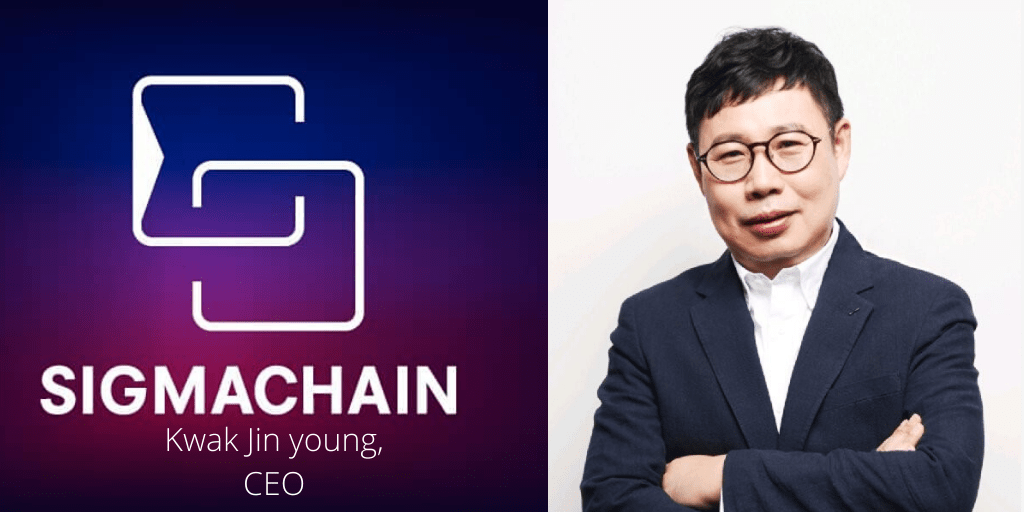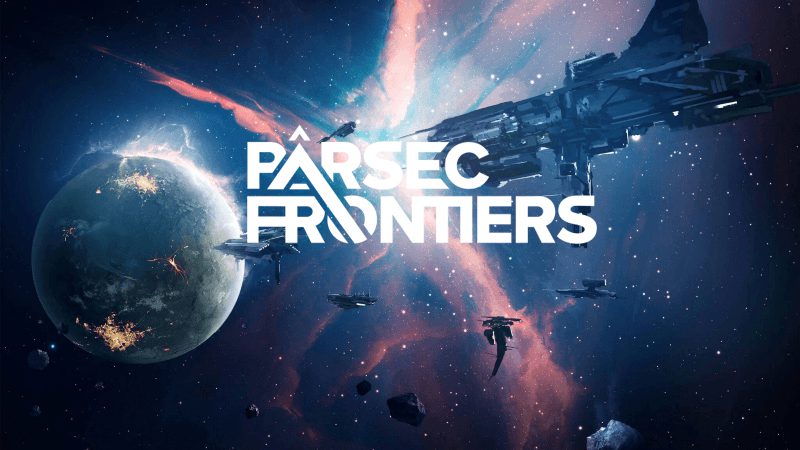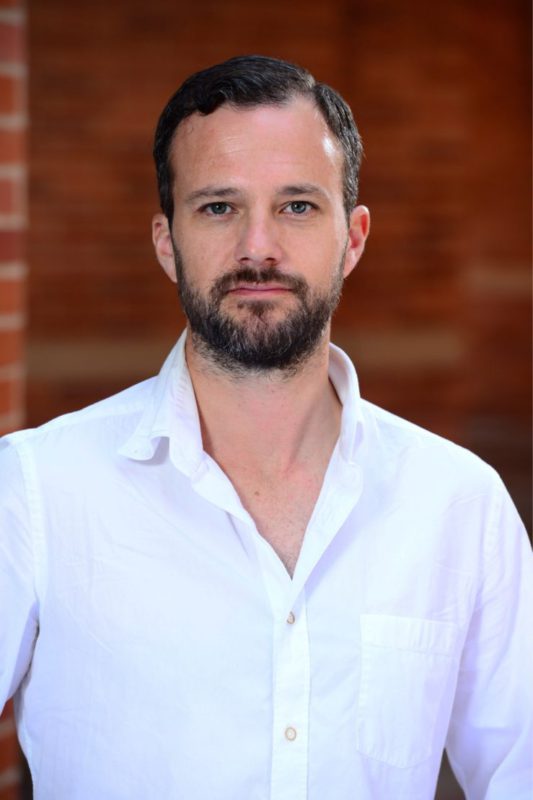In Conversation With The CEO of SigmaChain: Kwak Jin Young
We had pleasure interviewing, Kwak Jin Young, CEO of Sigmachain. Sigma Chain is the global leader in advisory, research, and development of customized blockchain technology. It helps to integrate blockchain technology by creating scalable, real-world solutions perfectly tailored to meet end-user needs.
Can you tell us what inspired you to pursue this career path? What do you want others to take from your story?
In 2013, I was part of a team, developing a new type of mobile application that could allow users to send and receive movies and large amounts of data without limit by utilizing individual servers instead of a central server through a distributed network.
The advantage of using a distributed network is that
We established Sigmachain intending to be a pioneer in applying the enormous benefits of this technology to everyday life. I want people to understand blockchain and the promises of a decentralized world.
Could you tell us about any of the interesting projects that you are working on currently?
Earlier this year, Futurepia released SNAC, our blockchain-based social media platform. Most social media platforms reward only a handful of members, while most of the users receive nothing. To change all of this and demonstrate the real benefits of a decentralized Internet, we created SNAC.
SNAC rewards all users with a cryptocurrency called SNAC. We believe SNAC will disrupt existing platforms and serve as a great example of how blockchain technologies can change the world. We’ve been laser-focused on expanding the benefits of SNAC by introducing it to additional markets.
As well as increasing its synergistic benefits by creating physical brick and motor cafes and introducing additional digital marketplaces where SNAC is accepted, such as LFIX, which sells beauty products.
Is there a particular person who you would like to credit with helping you get to where you are? Can you share an anecdote about that?
The person that I am very moved by is Kim Woo-Jung – the founder and chairman of the Daewoo Group – a major South Korean chaebol (a type of conglomerate) and car manufacturer. In his young hood days, he used to work as a newspaper delivery boy, and since his whole family was dependent solely on him, he worked hard in making both ends meet.
After getting his Economics Degree from one of the prestigious universities of Korea, he entered into a trading corporation from where he later on created Daewoo Industries. His story makes me believe that dreams do come true if you have the courage to pursue them, and he has always been an inspiration to me.
What are the 5 things that you think are most fascinating about blockchain and crypto? Why?
Social Network : I have been involved with social networking platforms for a long time. I was among the developers of the Cyworld, one of Korea’s first social networking platforms, and served as CTO of SayCupid, a dating app that was later sold to game developer Neowiz, in the early the 2000s.
Social networks based on blockchain benefit users in terms of evaluation and compensation. On a centralized platform, users will inevitably be under the control of those platforms. But on a decentralized system like SNAC, users can track down the original creator and the history of any alterations. So, original creators can claim more significant benefits. This will significantly improve the quality of the content.
On top of that, I have always wanted to create a globally successful social networking service. All the Korean platforms so far have failed to achieve global success. There are a lot of barriers for Korean companies to become global players, but I think blockchain helps us overcome those barriers. And so far, it has been very promising; two-thirds of SNAC users are from overseas.
Data Ownership: We see an increasing amount of data collection by larger companies. In response, we are also seeing efforts by Internet users to reclaim and protect that data. I think the possibilities of blockchain-based data ownership are very interesting. Again, on
SNAC, users can also trace content back to the original creator, potentially redefining how the Internet and social media users interact with the web and content producers.
Supply Chain Management: Our company, Sigmachain, offers private mainnet solutions to both public and private entities. The cost savings and logistical improvements in terms of supply chain management can be massive. As the world becomes increasingly more globalized, these factors will become increasingly more crucial to the success of larger enterprises.
Token Economy: I am very interested in how blockchain technology can create tokens and cryptocurrencies. I believe there will be a lot of social benefits to the underbanked in terms of remittances and p2p payments. As more of the underbanked portions of our society can leverage blockchain and the Internet to exchange funds more freely and conveniently, the growth potential could lead to transformative changes on a global level.
Blockchain Alliance: We are very involved in trying to create more collaboration and unity amongst blockchain ventures and interested parties. The more cooperation we see amongst token users and token accepting businesses, the closer blockchain will move towards mass adoption.
Critical mass is vital in truly unlocking the promise of a decentralized world. For these reasons, we created a collective organization called Sigma Alliance to focus on interoperability and creating more offline uses for tokens. LFIX is a prime example. We partnered with LFIX to allow SNAC to be used on their marketplace to buy beauty products.
What are the 5 things that concern you about blockchain and crypto? Why?
Roadblocks: My biggest concern about the blockchain industry is that there are a lot of roadblocks to reach mass adoption. DApps are usually difficult to access by users because they are required to create a different username and password for each one.
DApps can be challenging to develop because developers usually have to build it from scratch. Additionally, many of the more popular mainnets available have minimal transaction speeds. This combination of difficulties for users and difficulties for developers creates massive roadblocks hindering a massive transition to a decentralized world.
To address these concerns, we at Sigmachain created a mainnet that can handle 300,000 transactions per second. Additionally, we created something that we call “pasta” protocol, which allows users to use one id and password for all the DApps on the mainnet and allows developers access to over 100+ APIs, making it much easier to develop great DApps. We believe these solutions will prove beneficial in the effort towards creating a decentralized world.
Competitive Nature: Similar to those structural roadblocks that exist, there is a lot of competition amongst different blockchain ventures. I believe that competition is a good and healthy thing, but I also believe that there should be room to collaborate and create new opportunities together. As I mentioned earlier, I believe unity and collaboration are crucial to the success of blockchain. The Sigmachain Network Alliance has been very helpful in finding new opportunities and continually growing the pie for all parties involved.
Learning curve: I think because the industry is still quite young, there has yet to be a formal set of terms and language created. This lack of agreed-upon terms, as well as the number of new terms, makes the industry quite difficult to understand, especially for the newcomer. As we all know, in order for a real global shift to happen, the use of blockchain needs to reach a critical mass. One of the things preventing that is the difficult learning curve that exists in wrapping one’s head around some of the concepts and ideas about blockchain.
Government Regulation: Unfortunately, due to a number of white paper scams, there has been a lot of government regulation in the blockchain space. While government regulation is not always a bad thing, it can make it more difficult for smaller and sometimes more innovative companies to grow. On the other hand, government initiatives to make blockchain regulation-free zones, like the one recently pushed in Busan, can be very helpful in fueling growth. I am concerned about governments implementing the right type of regulation.
Security vs. Speed: I think that there may be a general misunderstanding about how safe some consensus algorithms are. Users, developers, and interested parties must understand the differences in these complex algorithms and understand that not all of them provide the same level of security. Historically, the trend has been that an algorithm would have to give up a certain amount of security to gain a certain amount of speed in terms of the transactions per second. I am very proud to say that our public mainnet, Futurepia, has reached an internationally recognized and independently verified 300,000 transactions per second (far superior to many competitors) while maintaining a superior security level.
How have you used your success to bring positive change to the world? Can you share a story?
After seeing the benefits of decentralization and how blockchain could bring those benefits to everyday life, I decided to start Sigmachain. My experiences in developing different social network platforms showed me first hand that making the technology easier to use for both developers and users would be absolutely critical in achieving rapid adoption. To do that we created a great public mainnet, Futurepia; which has the ability to scale, thus the ability to spread to many users. We created PASTA, which makes it easier for developers to create DApps and users to access those DApps.
Additionally, we created the Sigmachain Network Alliance, which improves the interoperability of our cryptocurrency to traditional businesses, digital marketplaces, and any number of different ventures. By taking these three steps, we believe that we are creating an ecosystem that is well-positioned to grow and spread to as many users as possible, thus bringing the benefits of blockchain to the world.
What are the 3 things that you would advise someone who aspires to emulate your career?
- Have Patience
- Be Trustworthy
- Have great technology
What is the one “Life Lesson Quote” that you stand by? Can you tell us how that had relevance to your own life?
My favorite quote is: “Long-lasting happiness can only be found in honesty.”
Who would be one person in the world that you would love to have a private breakfast or lunch with, and why?
To be perfectly honest, I don’t have a particular preference. I am fine with having
Where can our readers find you on social media?
LinkedIn: https://www.linkedin.com/in/kwak-jin-young-495ab422/
Stay informed with daily updates from Blockchain Magazine on Google News. Click here to follow us and mark as favorite: [Blockchain Magazine on Google News].
Get Blockchain Insights In Inbox
Stay ahead of the curve with expert analysis and market updates.
latest from tech
Disclaimer: Any post shared by a third-party agency are sponsored and Blockchain Magazine has no views on any such posts. The views and opinions expressed in this post are those of the clients and do not necessarily reflect the official policy or position of Blockchain Magazine. The information provided in this post is for informational purposes only and should not be considered as financial, investment, or professional advice. Blockchain Magazine does not endorse or promote any specific products, services, or companies mentioned in this posts. Readers are encouraged to conduct their own research and consult with a qualified professional before making any financial decisions.

 Bitcoin
Bitcoin  Ethereum
Ethereum  Tether
Tether  XRP
XRP  Solana
Solana  Dogecoin
Dogecoin  USDC
USDC  Lido Staked Ether
Lido Staked Ether  Cardano
Cardano  TRON
TRON  Avalanche
Avalanche  Chainlink
Chainlink  Wrapped stETH
Wrapped stETH  Toncoin
Toncoin  Sui
Sui  Shiba Inu
Shiba Inu  Wrapped Bitcoin
Wrapped Bitcoin  Stellar
Stellar  Polkadot
Polkadot  Hyperliquid
Hyperliquid  Hedera
Hedera  WETH
WETH  Bitcoin Cash
Bitcoin Cash  LEO Token
LEO Token  Uniswap
Uniswap  Litecoin
Litecoin  Pepe
Pepe  Wrapped eETH
Wrapped eETH  NEAR Protocol
NEAR Protocol  Ethena USDe
Ethena USDe  Aptos
Aptos  USDS
USDS  Internet Computer
Internet Computer  Aave
Aave  Cronos
Cronos  POL (ex-MATIC)
POL (ex-MATIC)  Mantle
Mantle  Ethereum Classic
Ethereum Classic  Render
Render  MANTRA
MANTRA  Monero
Monero  WhiteBIT Coin
WhiteBIT Coin  Bittensor
Bittensor  Dai
Dai  Artificial Superintelligence Alliance
Artificial Superintelligence Alliance  Arbitrum
Arbitrum  Ethena
Ethena 



